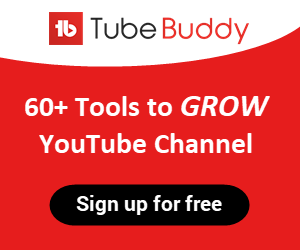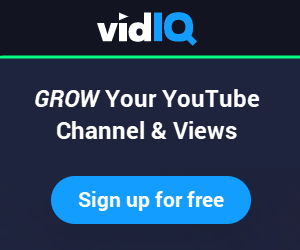May 19, 2024
Affiliate Disclosure: We may earn a commission if you buy something through the links on this page (at no extra cost).
Facebook has billions of monthly active users (MAUs), which is why thousands of affiliate marketers want a presence there. It has multiple features (profile, pages, groups, etc.) to promote goods and services and more channels than other social media websites, including Twitter, Instagram, and TikTok. Facebook has been around for years, so getting noticed is challenging. First-mover advantages are still available but are harder to find and maintain. You must attract thousands of clicks to make money regardless of your Facebook affiliate marketing strategy. Let’s review how to promote affiliate links on Facebook to make money in this post.
Before exploring affiliate marketing on Facebook, you might wonder, “Can you promote affiliate links on Facebook?” Yes, you can. Posting affiliate links on Facebook complies with its terms of service. Furthermore, when posting affiliate links, you should add the appropriate disclosures, for example, #Ad or #CommissionEarned. Transparency is a cornerstone of affiliate marketing, helping to educate consumers and create a fair marketplace.
Direct Vs. Indirect Affiliate Links
The direct affiliate marketing approach aims to promote products and services in posts. For example, you create a Facebook post about a book you read and include an affiliate link from Amazon.com. A user who clicks on the link will go straight to Amazon. By contrast, the indirect approach aims to direct traffic to a site where affiliate links exist. For instance, you post your blog about the best marketing tools containing affiliate links.
I use direct and indirect methods as they’re both valid. I typically use direct ways to promote free items, trials, and pay-per-lead programs because they’re low resistance and high converting. I direct traffic to my blog when I want to influence, persuade, and provide commentary and insights.
The Direct Approach: Affiliate Link to Amazon
The Indirect Approach: Link to My Website
Strategy and Tracking
What will be your Facebook affiliate marketing strategy? What will you promote, where, and how often? I won’t achieve my goals if I only promote items from my profile. Also, I might appear like a desperate spammer who doesn’t care about building trust and relationships. (Success in affiliate marketing depends on trust and loyalty.) Alternatively, marketing in a Facebook group makes perfect sense because posts mimic ads, and ads are typical on Facebook and other networks. Posting frequency is unique to each person and what makes them comfortable. One post daily or every other day had worked for me.
How will you track and assess your activities? I use Google Analytics to monitor traffic from Facebook to my site. It gives me an understanding of my work and enables me to compare my Facebook traffic to other sources, such as organic search and email marketing. Facebook provides social media analytics/insights to page and group owners. Also, there are many third-party Facebook marketing tools.
My affiliate marketing activities are extensive, so my goal isn’t to understand how much of my affiliate revenue comes from Facebook. Moreover, creating links specifically for Facebook and attempting to pinpoint income would be inefficient and time-consuming. Case in point: I don’t use a URL shortener to track my stats.
Marketing Automation
Marketing automation adds another wrinkle to the conversation. Some affiliates automate their posts with third-party software, but I don’t. I’ve tried automating on Facebook and was unimpressed with my results. I prefer to post natively and schedule content to meet my objectives. Still, using a third-party automation application could work for you.
Hashtags
Unlike Twitter and Instagram, hashtags have never become the “it” thing to do on Facebook. However, studies have shown that adding hashtags can increase impressions, click-through rates, and engagement. Therefore, adding three to five hashtags can boost your organic reach. By contrast, too many hashtags may hinder reach, appear spammy, and distract you from your main message. Many hashtag apps can help you find optimal keywords.
What Not to Do
Facebook and affiliate marketing can work in harmony. If you want to promote offers and remain on Facebook:
- Don’t spam affiliate links. Have a plan to post links efficiently and carefully.
- Don’t post affiliate links from questionable merchants, such as on platforms like ClickBank. I don’t do business with advertisers on ClickBank because most appear questionable. Instead, I recommend promoting well-known companies on reputable affiliate networks, including ShareASale, Impact, and CJ Affiliate.
- Don’t limit yourself. Promote a handful of promising merchants/offers and continuously explore new ones.
- Don’t focus on Facebook only. Most successful affiliates make money through their blogs and YouTube channels. It’s rare to read about someone who makes four or five figures monthly from social media alone. A blog is especially beneficial because you control it instead of subjecting yourself to the whims of Facebook (and other “big tech” platforms).
How to Promote Affiliate Links on Facebook
Facebook users have five ways to promote affiliate offers: profiles, pages, groups, messages, and ads. Let’s evaluate each.
Facebook Profile
Creating a profile is a requirement for being on Facebook. A profile is where you can express who you are and what’s happening in your life. Completing your profile will work in your favor to build your brand, relationships, trust, loyalty, and credibility.
Affiliate marketing activities will work on your profile if you have many engaged followers. However, you won’t get Facebook analytics as you will with Facebook pages and groups. You can use a URL shortener service like Hootsuite or Bitly to track clicks and other data.
Affiliates use direct and indirect marketing methods on their profiles. Your posts could reflect your work, experiences, interests, and hobbies.
Facebook Pages
A Facebook Page enables an individual, public figure, business, organization, and other entities to create an authentic and public presence on Facebook. Because it’s more dynamic than a profile, a Facebook page can be handy for affiliate marketing. Page owners have many settings and can access Facebook Page Insights to understand how their pages perform. The Facebook Page Insights tab focuses on three core areas: page likes, post reach, and engagement. You can also track followers, page views, and video statistics.
One way to use Facebook Pages for affiliate marketing is to focus on a theme or topic and related goods. For instance, a travel and leisure page would feature content about travel, vacation, lifestyle, adventure, relaxation, etc. The affiliate could post flash sales for airfares, accommodations, and car rentals. If the affiliate has a travel blog, she can display content from her site. If you create a page about yourself, your posts can relate to your work, experiences, interests, and hobbies.
Facebook Groups
Facebook Groups allow people to unite around a common cause, discuss issues, and share related content. A robust Facebook group affiliate marketing strategy starts with creating and building a group.
As the previous owner of a large Facebook group with 40,000+ members, I got tremendous value from it. For starters, I controlled group activities and announcements, which were critical to my affiliate marketing success. While a Facebook page can be an asset, a Facebook group can be just as valuable and more straightforward to grow. Additionally, there are many ways to make money with Facebook groups.
My Facebook group focused on providing free access to online courses. Given the group’s objective, I promoted free courses and trial programs from e-learning sites like Coursera and Skillshare. I occasionally promoted items that members could have found interesting, such as TubeBuddy, a YouTube tool to grow a channel.
Some marketers go wrong by promoting items with minimal or no relation to a group’s objective. Case in point: it doesn’t make sense to post travel deals in a group about WordPress development. Secondly, I saw many publishers spam Facebook groups with affiliate links, a low-probability way to generate commissions. In highly active groups, posts and affiliate links are buried within seconds by newer posts. Instead, I pinned posts that contained affiliate links so that they remained visible.
More great reads:
- 11 Ways to Earn Money From a Facebook Page
- How to Buy or Sell a Facebook Group
- 17 Ways to Monetize a Facebook Group
- 20+ Best Tools for Marketers & Businesses
Grow Your YouTube Channel with VidIQ
Facebook Ads
Facebook Ads allow individuals and businesses to run paid ads on Facebook. You need a Facebook Page to run ads. Before using ads, you’ll want to understand Facebook’s policies. Affiliate links, redirects, and suspicious sites/landing pages get many people suspended and banned from using ads, including Facebook. Facebook will review an advertisement before approving or declining it.
Ads can be beneficial if you’re well-versed in advertising techniques and best practices. For instance, you would use an attention-grabbing headline, an eye-catching image or thumbnail, a clear call-to-action, etc. You’ll want to understand how to set up an ad to optimize conversions and return on investment. Ads cost money, so start with a small budget and experiment until you know what works. Study the ads of others for ideas and insights.
The direct marketing approach isn’t the strategy to implement. Instead, I recommend directing traffic to your website or landing page as part of a marketing/sales funnel strategy. Also, sending people to your site is less likely to attract Facebook police. Many affiliates use ads to build their email lists, which trigger autoresponse sequences containing affiliate links and products for sale. For top-rated landing pages and email marketing software, review GetResponse and MailerLite.
Facebook Messenger
Messenger is Facebook’s messaging app for communicating with other users. Messenger has over a billion users, and millions use it daily.
Messaging random people or your contacts with affiliate links is impractical, inefficient, low probability, and a good reason for Facebook to ban you. An efficient approach would be implementing a chatbot to automate some of your activities. Some affiliates create bot funnels to replicate their sales funnels and email autoresponders.
Bots work together with pages, so you must have a Facebook page to enable it. Facebook has policies and usage guidelines for Messenger and will shut down spammy and abusive bots. I haven’t taken the bot approach, but many publishers cover bot affiliate marketing on their blogs and YouTube channels.
Frequently Asked Questions
Is affiliate marketing allowed on Facebook?
Yes, Facebook does allow affiliate marketing activities on its website. However, it prohibits links from specific sites. Facebook will alert you about unsupported sites.
How do I start affiliate marketing on Facebook?
Create a Facebook account, join at least one affiliate program, and start posting your links.
Can I post Amazon affiliate links on Facebook?
Yes, you can post Amazon affiliate links on Facebook and links from other companies.



